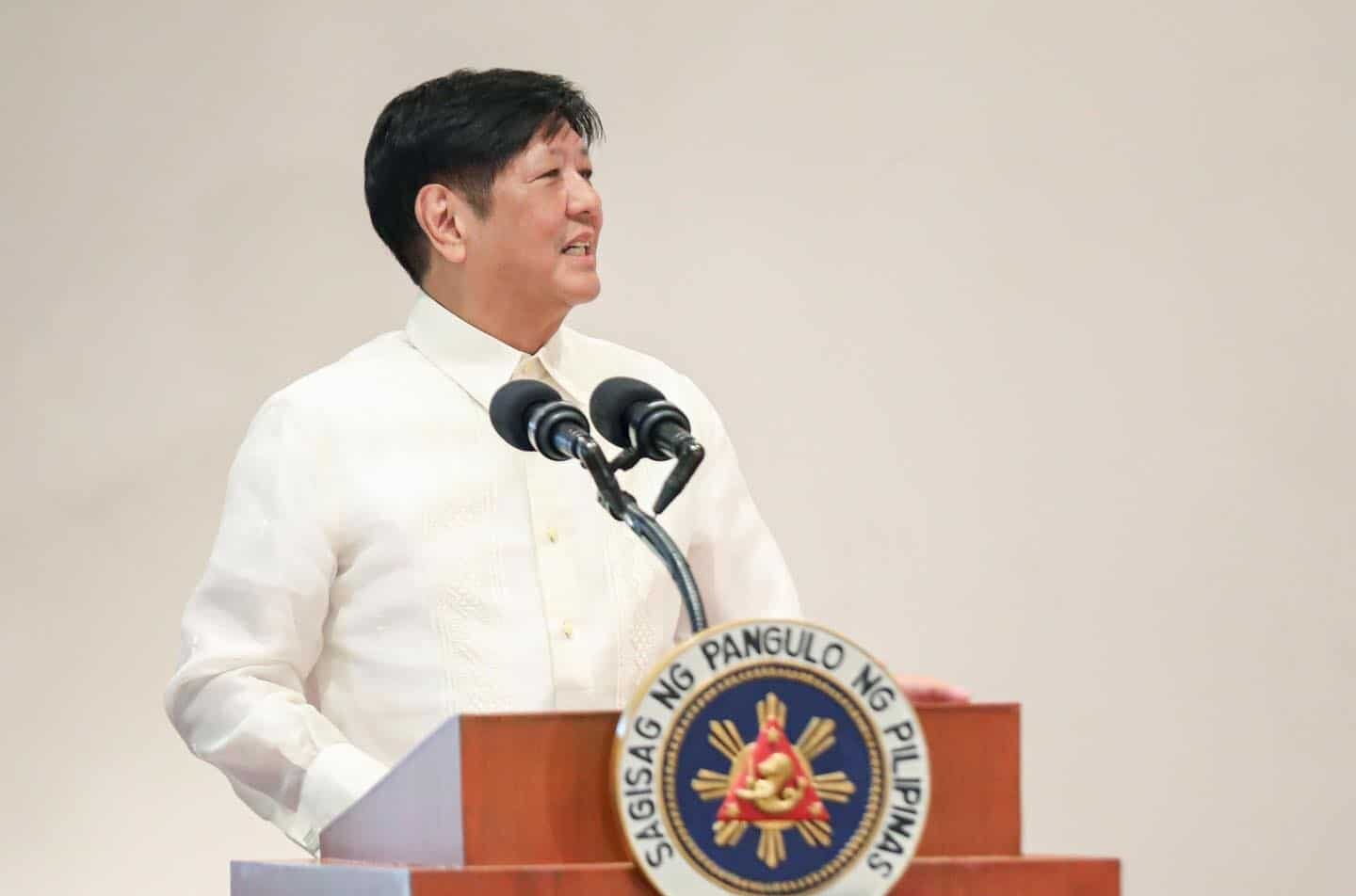
President Ferdinand Marcos, Jr. —Photo from the official Facebook page of PCO
MANILA, Philippines — President Ferdinand Marcos Jr. on Wednesday signed into law a measure imposing a 12-percent value-added tax (VAT) on foreign digital service providers (DSPs) of video and music streaming, conferencing, and online marketplaces in a bid to raise about P105 billion in revenues over the next five years.
Republic Act No. 12023 amended the 1997 National Internal Revenue Code to include nonresident DSPs in the coverage of VAT, thus removing their undue advantage over their local counterparts that pay the tax.
In a speech after its signing in Malacañang, the President said that with both local and foreign DSPs subject to a 12-percent VAT, they now “compete on equal terms” and will “no longer be playing by different sets of rules.”
READ: Bicam OKs VAT on nonresident digital service providers – Salceda
“If your presence in the Philippine market is as real as your profits, then your tax responsibilities should also be equally tangible … If you are reaping the rewards of a fruitful digital economy here, it is only right that you contribute also to its growth. After all, whether you are a small tech start-up or a global tech giant based halfway around the world, if you are making money here in the Philippines, you are part of our community. And with that comes a shared responsibility,” Marcos added.
“Fairness, inclusivity, and progress—these are the goals of this law,” he noted.
Coverage, exemption
The law defines DSPs as entities whose services are delivered or subscribed to over the internet or other electronic networks such as online search engines and marketplaces, cloud services, online media and advertising, and downloadable digital content consumed in the Philippines.
These include cloud services or platforms providing digital content such as Netflix, Amazon Prime, Disney Plus, and HBO as well as online marketplaces such as Lazada, Shopee, Shein, and Amazon.
Exempted from the digital VAT are educational services such as online courses and webinars of private institutions and online subscription-based services such as Zoom or Google Classroom to educational institutions recognized by the Department of Education, the Commission on Higher Education, and state universities and colleges.
RA 12023 consolidated House Bill 4122 which was passed in November 2022 and Senate Bill 2528 which was approved in May this year. The two chambers of Congress ratified the final version of the bill in July.
Foreign DSPs are mandated to register for VAT if their gross sales or receipts for the past year exceed P3 million.
Foreign DSPs who fail to comply with the digital VAT will have to pay penalties and surcharges, apart from the temporary blocking of their websites and platforms in the Philippines.
Creative economy
The president said the revenues from the new law will be spent on nation-building measures, adding that the P105 billion in projected collection is enough to build 42,000 classrooms, 6,000 rural health units, 7,000 kilometers of farm-to-market roads, and other critical public services.
The law also earmarked 5 percent of the revenues for the development of the country’s creative industries for the next five years.
Among those comprising the creative economy, as defined by the Philippine Statistics Authority, are audio and audiovisual media activities; digital interactive goods and services; advertising, research and development; media publishing and printing, and music, arts and entertainment.
“This means our artists, filmmakers, musicians—the very people who fill our platforms with stories and with content—will directly benefit. This ensures that our creative talents are not just surviving in a competitive digital market but will be allowed to prosper,” Marcos said.
In a statement, Albay Rep Joey Salceda thanked the President for signing the new law, out of which funds would be set aside for the development of the Philippine creative sector.
“For the longest time, our VAT system has taxed domestic creatives while allowing foreign companies to sell to Filipinos without any tax,” he said,
“The 12-percent difference in treatment is no small matter—indeed, before this law, it meant that foreign creatives in the digital space could be sold cheaper than their domestic competitors,” he added.
Simplified registration
BIR Commissioner Romeo Lumagui Jr. said the law is a “crucial step in ensuring fairness and competition in our rapidly evolving digital economy.”
“This new law corrects that imbalance by subjecting all (DSPs) both local and foreign to the same 12-percent VAT,” he said in a Palace press briefing.
Lumagui said the government expects around 100 foreign DSPs to register for the payment of digital VAT.
Nina Asuncion, director of the Department of Finance’s revenue operations group, said the BIR is working on a simplified registration system for nonresident DSPs and the filing and payment system for digital VAT.
The BIR will begin implementing the digital VAT on foreign DSPs at least 120 days after the publication of the law’s implementing rules and regulations (IRR), which are to be finalized within 90 days from its signing.
Lumagui allayed fears that DSPs might jack up subscription fees because of the new law, as they would just risk losing customers.

